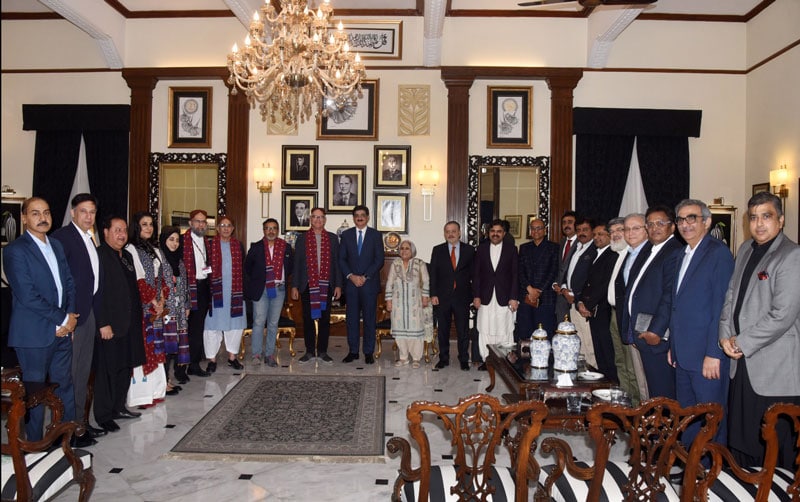The Institute of Business Administration (IBA) Karachi and Stanford University’s Life Design Lab have joined forces with the Sindh government to address Karachi’s critical challenges through innovative design thinking. This initiative, spearheaded by Sindh Chief Minister Syed Murad Ali Shah, seeks to revolutionize urban planning, public welfare, and governance for Karachi’s 20+ million residents.
The partnership, which began earlier this year in California, has intensified with Stanford experts now stationed in Karachi. A high-level strategy meeting brought together Sindh’s cabinet members, senior bureaucrats, and Stanford faculty to explore immediate and long-term solutions to issues like traffic congestion, public safety, and the need for accessible open spaces. Chief Minister Syed Murad Ali Shah expressed optimism, stating, “Karachi’s challenges are immense, but so is our resolve. By combining Stanford’s world-class expertise with local insight, we are setting a transformative course for the city’s future.”
Led by Dr. S. Akbar Zaidi (IBA Karachi), Bill Burnett (Stanford Life Design Lab), and Junaid Aziz (Stanford Fellow and IBA alumnus), the partnership will train ministers, bureaucrats, and students to adopt modern problem-solving techniques. The initiative will embed human-centered design practices into governance, ensuring that Karachi’s challenges are tackled with innovative and effective strategies. The collaboration’s early prototypes focus on optimizing traffic flow, enhancing public spaces, and improving community-driven security measures.
These projects aim to provide immediate relief while establishing a foundation for long-term development. Junaid Aziz, a key figure in the partnership, remarked, “Returning to Karachi and IBA feels like a full-circle moment. It’s an honor to bring the tools I’ve learned at Stanford to create meaningful change here. The Chief Minister’s visionary leadership inspires us to think big and act fast.” Bill Burnett, Executive Director of Stanford Life Design Lab, highlighted the partnership’s broader implications: “This collaboration isn’t just about solving Karachi’s problems; it’s about creating a blueprint for innovation that Pakistan can showcase globally. Karachi’s potential is immense, and this partnership demonstrates the power of combining local insights with global methodologies.” The Sindh government has also formed provincial action committees to fast-track the implementation of these initiatives.
Under Junaid Aziz’s leadership, Stanford experts and IBA students will work closely with these committees, ensuring that solutions are practical, sustainable, and impactful. Chief Minister Murad Ali Shah’s decision to collaborate with Stanford reflects his commitment to revolutionizing how Karachi’s challenges are addressed. By leveraging global expertise and innovative methodologies, the partnership aims to transform Karachi into a model of modern urban governance.










